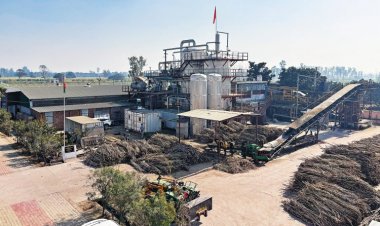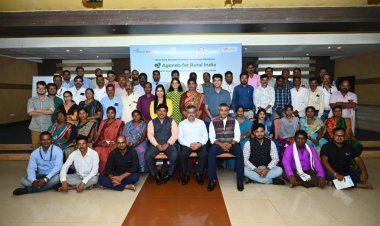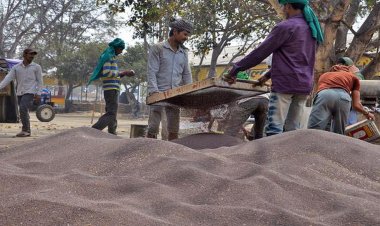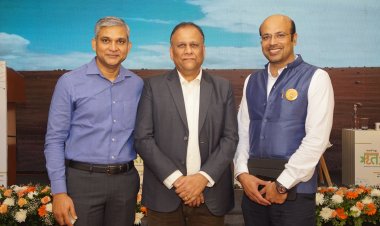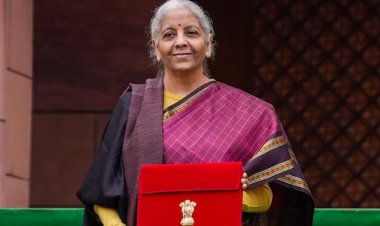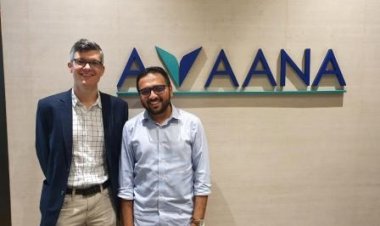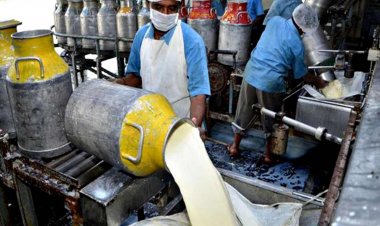Are Indian villages salt mines?
Thakur Phool Singh, an MLA, said, “Indian villages are salt mines and whosoever comes to work here will be dissolved.” But there is hope if a person committed to rural development works as an agency to put various stakeholders on one platform for better outcomes. Both I and my wife are working more or less as samaj shilpi dampati (a couple engaged in reforming society).
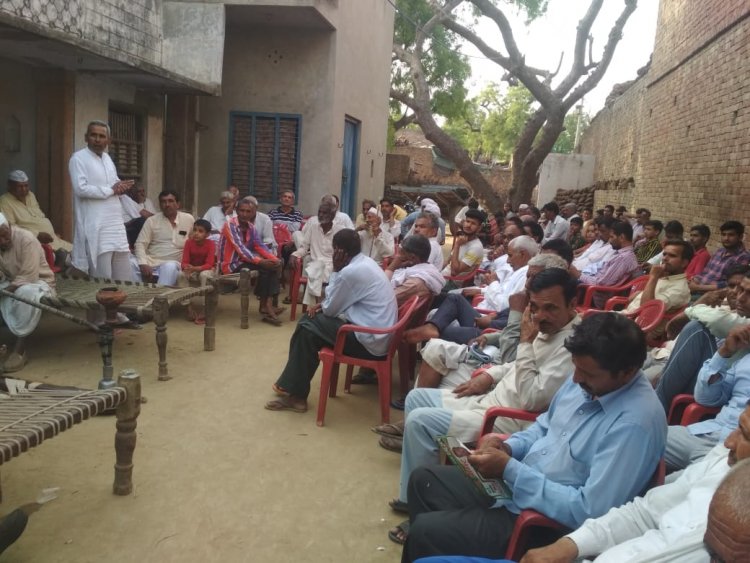
Some time back, my friend Naseeb Singh Verma told me in a tete-a-tete that Thakur Phool Singh, who was an MLA, used to say, “Indian villages are salt mines and whosoever comes to work here will be dissolved.” I tried to search out some literature written by him to know his ideas on rural development or rural transformation or rural reconstruction of rural people or rural areas on a sustainable basis. But I could not get that.
Why I was searching out the literature was because of my desire to work in rural areas in a cluster of five Gram Panchayats in the district of Saharanpur. And this had in its background two desires that I had when I retired from the Government of India on 31 December 2015. One of my desires was to write a book for international publishers on rural development. I was able to fulfil that with my book Rural Local Governance and Development published by Sage.
My second desire was to work in rural areas in an action mode. It is in pursuit of this desire that the Karpa Foundation Trust was registered and Karpa Farm was started a couple of years ago to translate our idea of social-cum-economic development of villages and the people living there into reality. I have not received any fund from anyone. I invested the money I had earned myself in establishing a farm and carrying out activities in the form of training and capacity-building besides doing organic farming. The last two years have been turbulent for me and my wife due to Covid-19. Both of us contracted the virus and we spent 12 days in a hospital.
Although my money, mind and efforts were for rural development, it cannot be seen in isolation. Rather, it should be seen in a holistic manner. That is why it encompasses the primary, secondary and tertiary sectors of the economy. Saharanpur city is about 11 km from our farm, which is located almost in the jungle. On some days I used to stay on the farm. My father got to know about this and said: “Mahi Pal! Do not stay here because it is a jungle and the area is insecure. Someone may harm you. Stay either in the village or in the city.” All I said to him was “thank you”.
Let me apprise the readers that for those who have been out of villages for a long time either on account of service or on that of business, living in villages is difficult. They find it difficult to adapt to the village and its life. But at the same time, if you create an environment for building social capital, you will also be appreciated by the villagers.
When I was intending to do work in the villages, some of our friends used to tell me that I would not get the desired support from the rural area because there was a lot of negativity there. The villagers would suspect, I was told, my motive to work in the villages. I did experience some negativity personally that is being shared with the readers in this piece. Saying the correct/right thing to anyone means inviting trouble from them. If I cautioned someone that having too much liquor was harmful to him, the reply would come from him immediately: “I am not having liquor from your money; I spend my own money.” The person did not know that creating problems for others was not right on his part and not under his jurisdiction. Moreover, everybody must use monetary resources in such a way that welfare could be maximized.
If someone interested in the development of villages asks questions from the drinkers, it means inviting negativity from them. They may not cooperate in farming activities or even go to the extent of harming the “reformer” physically. And when the person who wants to bring about reforms in the village is in trouble, the troublemakers become happy. In other words, creating negativity in others’ life is a source of happiness to them. How can development take place in such a situation? On the other hand, there are people who are always for helping the needy in their work, creating social infrastructure and also building scientific temper among the children.
It is well known that there is a need to improve the Panchayati Raj which is in operation in villages because it is rarely as per the law and rules. If someone in the village raises issue about the functioning of Panchayats, there would be a tussle between the Pradhan (President of the Gram Panchayat) and the person who raised the issues about the functioning of the Gram Panchayat (GP). Sometimes, the tussle went to the extent of murder being committed. Such questioning creates sustained quarrels between these families.
There is hardly any democracy in the village. The entire system of Panchayati Raj is Pradhan- and Gram Sachiv-centric. The officials who are supposed to carry out various activities of Panchayats as per the rules rarely do so. People’s participation is confined to paper. It should not be considered hyperbole if I say that what we have in the villages is “official raj” and not Panchayati Raj. I came to know from some of the Pradhans and others that panchayats’ works are being done from their own pockets and they would be reimbursed subsequently. How many Pradhans have so much to expend from their own pockets? Why do they do this? Some of the Pradhans might be getting loans for this and subsequently returning the money with interest. This is happening because there is “understanding” between officials and Pradhans. Is this governance where rules and regulations are thrown out of practice?
Further, there is caste prejudice. Castes and communities want to have their own versions of nationalism. Instead of creating employment in rural areas, people in some villages are concerned about which bhajans should be aired in the evening and in the morning from the tops of the temples. Seeing the state of affairs of rural areas what Dr BR Ambedkar said in the Constituent Assembly comes to my mind: “What is the village but a sink of localism, a den of ignorance, narrow-mindedness and communalism?” (The author invites opinions about the comments made by Dr Ambedkar.)
Education is on the back burner. The government schools are there. Yet, generally, parents send their wards to the so-called “public schools”, where teachers are not as qualified and trained as in the government schools that provide free education. Parents send their children to these “public schools” despite financial constraints. If someone asks them about the performance of their children, they hasten to add, “We do not know as we are illiterate.” Still, they are paying so much fees to the schools. It is merely to satisfy their ego that the parents send their wards to the “public schools”. Ironically, if someone starts remedial schools (RS) for children and bears expenditure from their own pockets, negativity is again spread by saying that the person who is running the RS is earning a lot of money. The reality is that the person is spending money from his pockets because of his concern for and commitment to the educational development of children, particularly those belonging to marginalized groups.
It is indeed true that a lot of efforts needs to be made to mobilize people for some good work. On the other hand, if there is a feast where liquor is served, a good gathering is a certainty. I talked to many persons working in the villages for rural development and all of them shared their unpleasant experiences. In other words, they proved to be square pegs in round holes.
But there is the reverse side of this that depends on what stand you have taken for facilitating rural development. A person committed to rural development should work as an agency to put various stakeholders on one platform for better outcomes. Create social capital by forming Self Help Groups (SHGs) of women and/or men and link them with banks for developing microfinance and micro-enterprises. In this way, the person would be welcomed in the villages. And he or she will get the desired social activists from the village to facilitate their efforts. Both I and my wife are working more or less as samaj shilpi dampati (a couple engaged in reforming society).
(The author is a former officer of the Indian Economic Service. The views expressed here are his own.)



 Join the RuralVoice whatsapp group
Join the RuralVoice whatsapp group

















